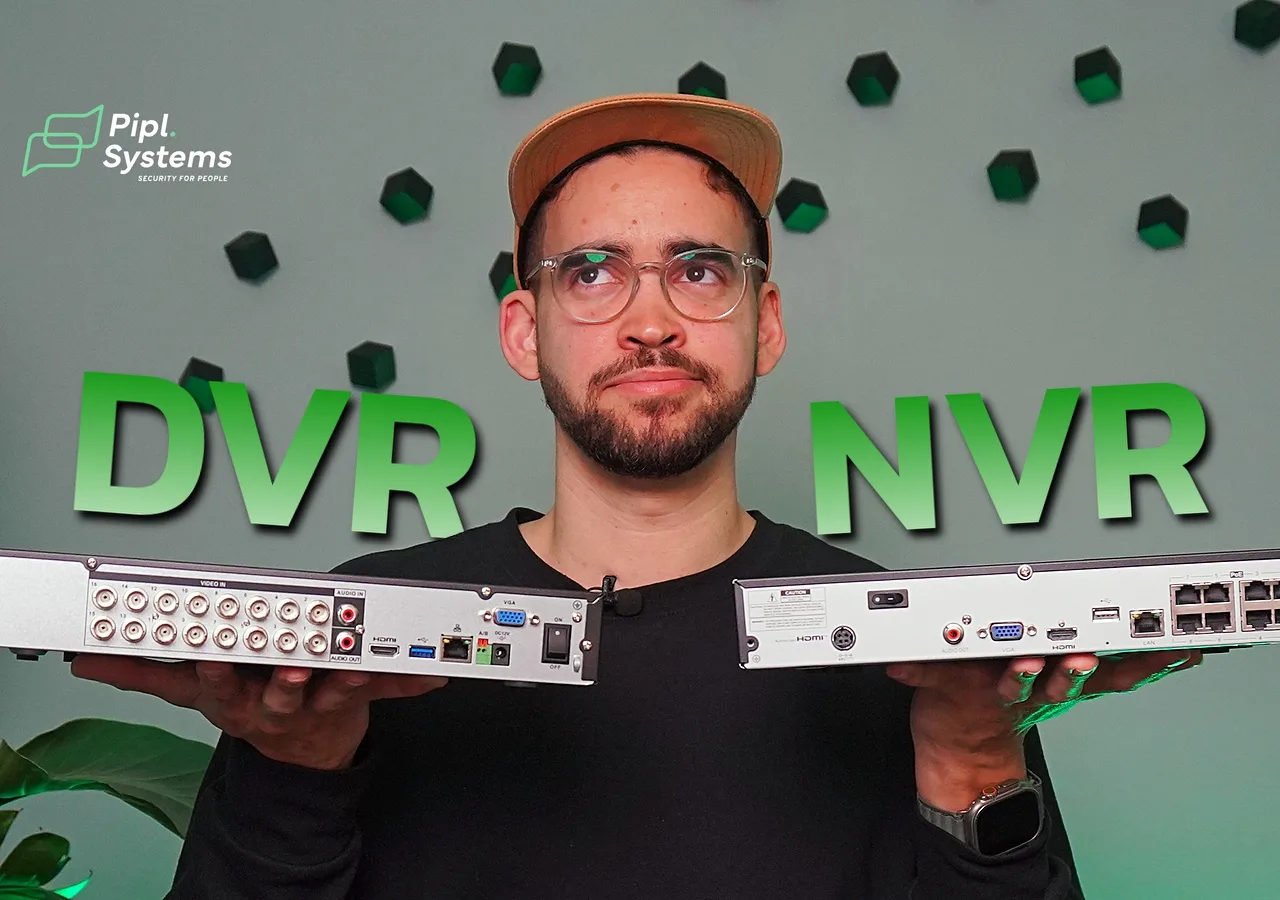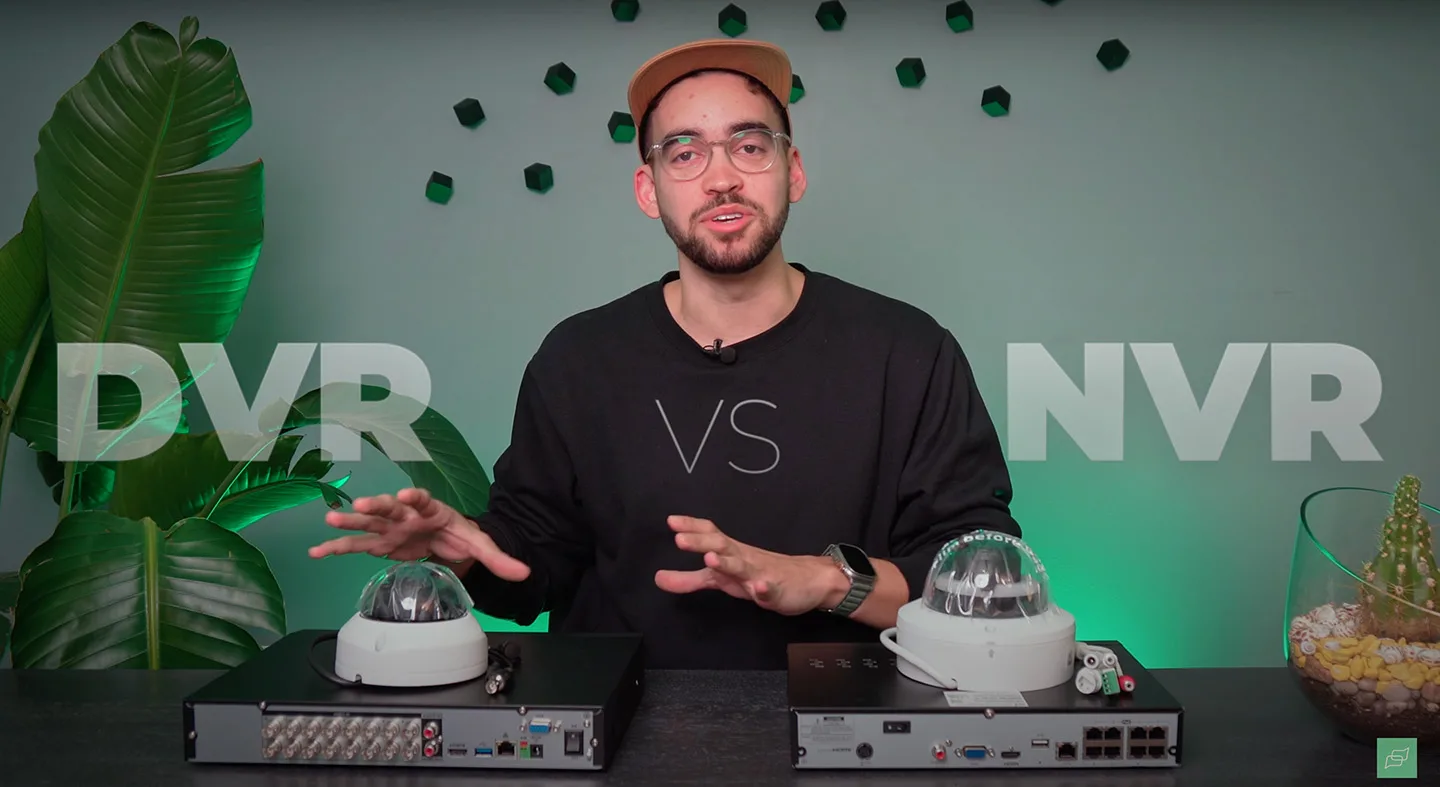Welcome to Pipl Systems Media Portal!
Welcome to the Pipl Systems media portal! As an independent expert in security systems, Jeremie Lusignan is thrilled to share insights and knowledge with you. Our goal is to provide valuable information to help professional installers and integrators stay ahead in the ever-evolving security industry.
In the realm of video surveillance, choosing the right technology is crucial for effective security management. Today, we delve into the comparison between DVR (Digital Video Recorder) and NVR (Network Video Recorder) systems. This article will focus on the fundamentals of DVR systems, highlighting their features, applications, and limitations.
What is a DVR?
A DVR, or Digital Video Recorder, is a type of video recording system used in surveillance. DVRs are designed to work with analog cameras, which capture video and send it to the DVR via BNC (Bayonet Neill-Concelman) cables. The DVR then processes and stores the video footage. This system is known for its straightforward setup and reliable performance.
Features of the Cable Between DVR and Cameras
- BNC Cables: DVR systems utilize BNC cables to transmit video signals from cameras to the DVR. These cables are robust and provide a secure connection, ensuring minimal signal loss over short distances.
- Separate Power Supply: Unlike NVR systems that can use Power over Ethernet (PoE) technology, DVR systems require a separate power supply for the cameras. This means that along with the BNC cable, an additional power cable is necessary to power the cameras.
- Video Only Transmission: BNC cables in DVR systems only transmit video signals. Audio and other data types require additional wiring, which can complicate installations.
Application and Limitations of DVR Surveillance Systems
Applications
- Legacy Systems: DVR systems are ideal for upgrading existing analog surveillance setups. They allow for seamless integration with older analog cameras, making them a cost-effective solution for businesses looking to enhance their security without a complete overhaul.
- Small to Medium-Sized Projects: For smaller projects, such as retail stores or small office spaces, DVR systems provide sufficient coverage and performance.
Limitations
- Scalability: DVR systems can become cumbersome in larger installations. Each additional camera requires its own BNC and power cables, and scaling up often means adding more DVR units, which can be impractical and costly.
- Resolution Constraints: Analog cameras used with DVR systems generally max out at 5 megapixels. While this is adequate for many applications, it falls short of the higher resolutions available with IP cameras used in NVR systems.
- Complex Cabling: The need for separate power and video cables can lead to a complex and cluttered setup, particularly in large-scale installations.
While DVR systems offer a reliable and straightforward solution for video surveillance, they come with limitations in scalability and resolution. For installers working with existing analog infrastructures or smaller projects, DVR systems can be an excellent choice. However, for those needing higher resolution and more scalable solutions, exploring NVR technology might be more beneficial.
Subscribe to the Pipl Systems email newsletter to stay informed about all the latest developments in the security industry.
What is an NVR?
An NVR, or Network Video Recorder, is a cutting-edge video recording system that utilizes IP technology. Unlike the analog-based DVR, NVR systems connect to IP cameras via CAT 5 cables, which transmit both video data and power through PoE (Power over Ethernet) technology. This allows for a more streamlined installation process and eliminates the need for separate power supplies for each camera.
Resolution Without Limitation on NVR
One of the significant advantages of NVR systems is the support for high-resolution cameras. While DVR systems are typically limited to 5-megapixel cameras, NVR systems can handle resolutions of 4K, 8K, and beyond. This flexibility allows for the use of 16-megapixel cameras, providing superior image clarity and detail, which is essential for critical security applications.
About NVR System Scalability
NVR systems offer unparalleled scalability. For large-scale projects, an NVR can be connected to external PoE switches, enabling the integration of numerous cameras without the need for additional NVR units. This daisy-chain capability ensures that your surveillance system can grow seamlessly as your security needs expand. By adding more PoE switches, the system can support virtually unlimited cameras, making it an ideal choice for extensive installations.
Comparison of Digital and Network Technology
- Digital (DVR) Technology:
- Connection: Uses BNC cables to connect analog cameras to the DVR.
- Processing: Video is processed by the DVR.
- Power Supply: Requires separate power supplies for cameras.
- Resolution: Limited to 5-megapixel cameras.
- Scalability: Adding more cameras requires additional DVR units.
- Network (NVR) Technology:
- Connection: Uses CAT 5 cables with PoE to connect IP cameras to the NVR.
- Processing: Video is processed by the camera itself.
- Power Supply: Cameras are powered through the same CAT 5 cable via PoE.
- Resolution: Supports high-resolution cameras up to 16 megapixels or higher.
- Scalability: Easily scalable with PoE switches, supporting numerous cameras without needing additional NVR units.
Conclusion
Choosing between DVR and NVR systems depends largely on your specific needs and the nature of the installation. DVR systems are ideal for upgrading existing analog infrastructures, offering a cost-effective solution for smaller projects. However, for new installations or larger-scale projects, NVR systems provide greater flexibility, scalability, and higher resolution capabilities.
Stay tuned for more educational content to help you stay at the forefront of the security industry. Subscribe to the Pipl Systems email newsletter to receive the latest updates, tutorials, and industry news.

To access a special offer on G.S.D Group products, simply visit the G.S.D Group page on the Pipl Systems website and make a request. Our team will connect you with a G.S.D Group representative in your region, who will assist you in obtaining an offer on favorable conditions tailored to your requirements. Take advantage of this opportunity to enhance your security systems with cutting-edge G.S.D Group products. Visit our website and submit your request today to unlock exclusive benefits and secure your organization’s assets.



























